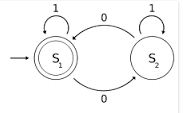because js regex doesn't support recursive match, i can't make balanced parentheses matching work.
so this is a simple javascript for loop version that make "method(arg)" string into array
push(number) map(test(a(a()))) bass(wow, abc)
$$(groups) filter({ type: 'ORGANIZATION', isDisabled: { $ne: true } }) pickBy(_id, type) map(test()) as(groups)
const parser = str => {
let ops = []
let method, arg
let isMethod = true
let open = []
for (const char of str) {
// skip whitespace
if (char === ' ') continue
// append method or arg string
if (char !== '(' && char !== ')') {
if (isMethod) {
(method ? (method += char) : (method = char))
} else {
(arg ? (arg += char) : (arg = char))
}
}
if (char === '(') {
// nested parenthesis should be a part of arg
if (!isMethod) arg += char
isMethod = false
open.push(char)
} else if (char === ')') {
open.pop()
// check end of arg
if (open.length < 1) {
isMethod = true
ops.push({ method, arg })
method = arg = undefined
} else {
arg += char
}
}
}
return ops
}
// const test = parser(`$$(groups) filter({ type: 'ORGANIZATION', isDisabled: { $ne: true } }) pickBy(_id, type) map(test()) as(groups)`)
const test = parser(`push(number) map(test(a(a()))) bass(wow, abc)`)
console.log(test)
the result is like
[ { method: 'push', arg: 'number' },
{ method: 'map', arg: 'test(a(a()))' },
{ method: 'bass', arg: 'wow,abc' } ]
[ { method: '$$', arg: 'groups' },
{ method: 'filter',
arg: '{type:\'ORGANIZATION\',isDisabled:{$ne:true}}' },
{ method: 'pickBy', arg: '_id,type' },
{ method: 'map', arg: 'test()' },
{ method: 'as', arg: 'groups' } ]


